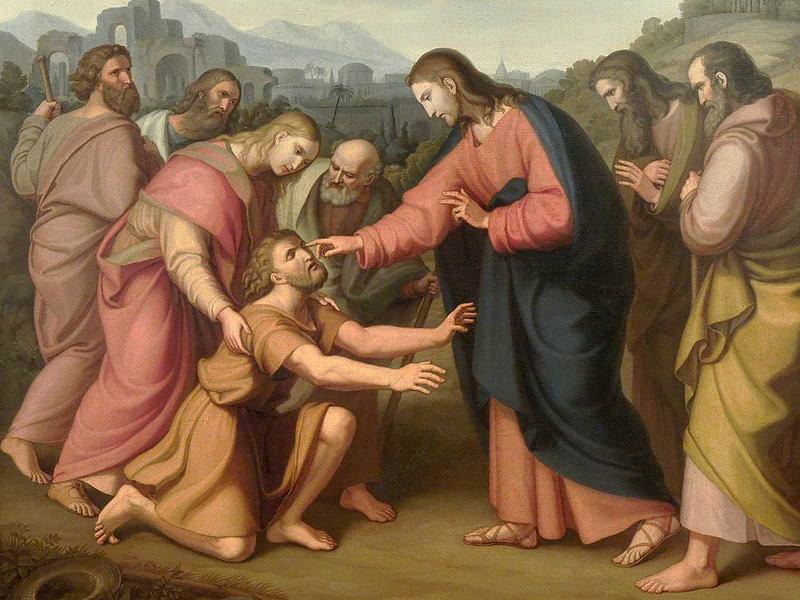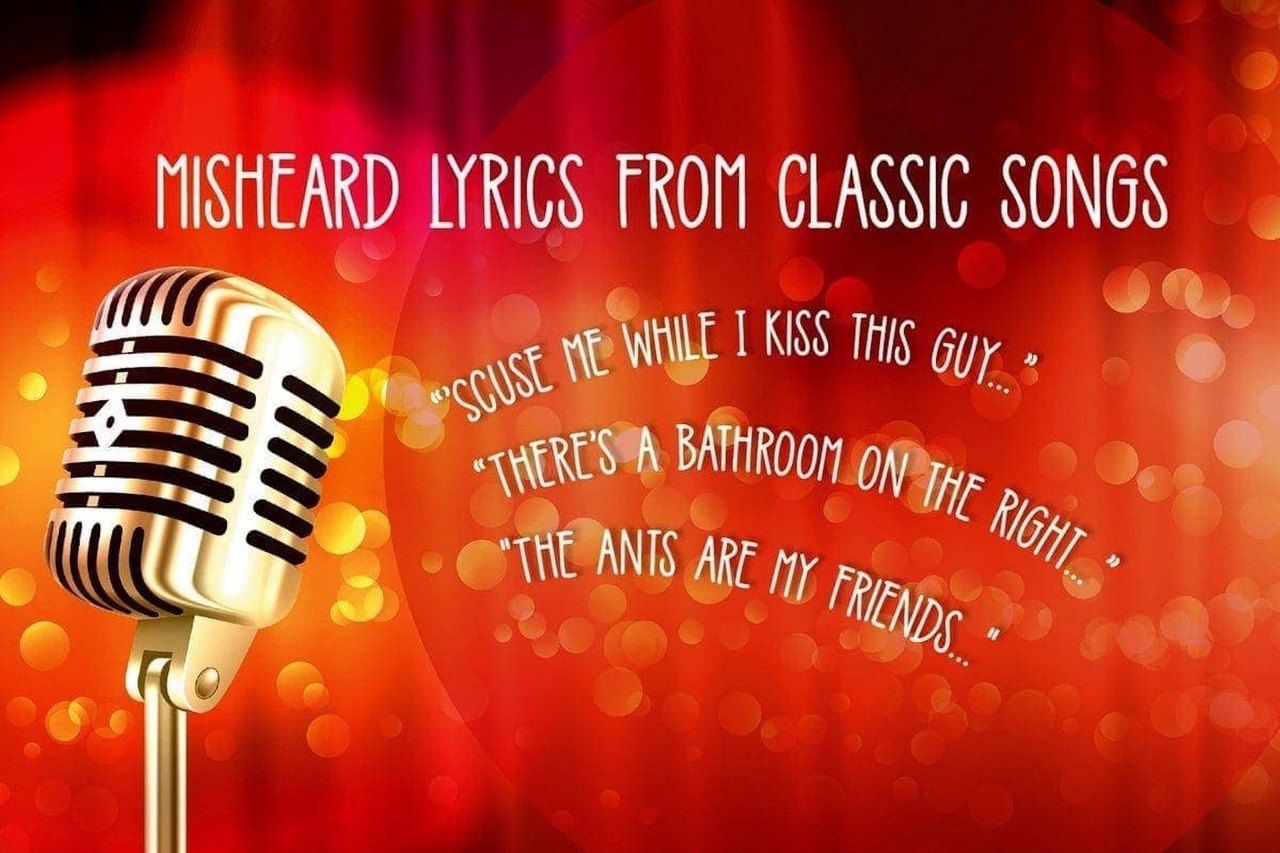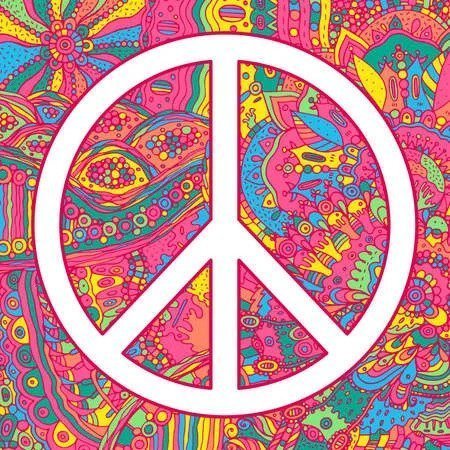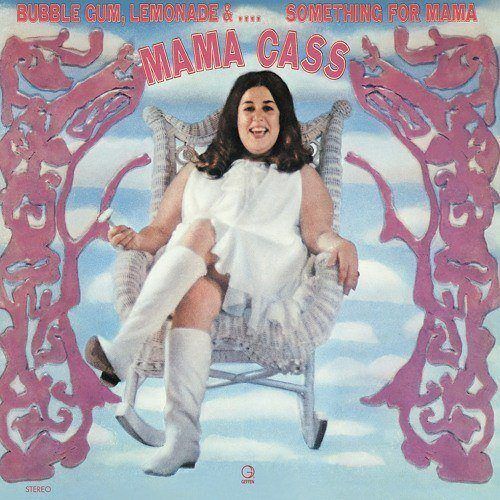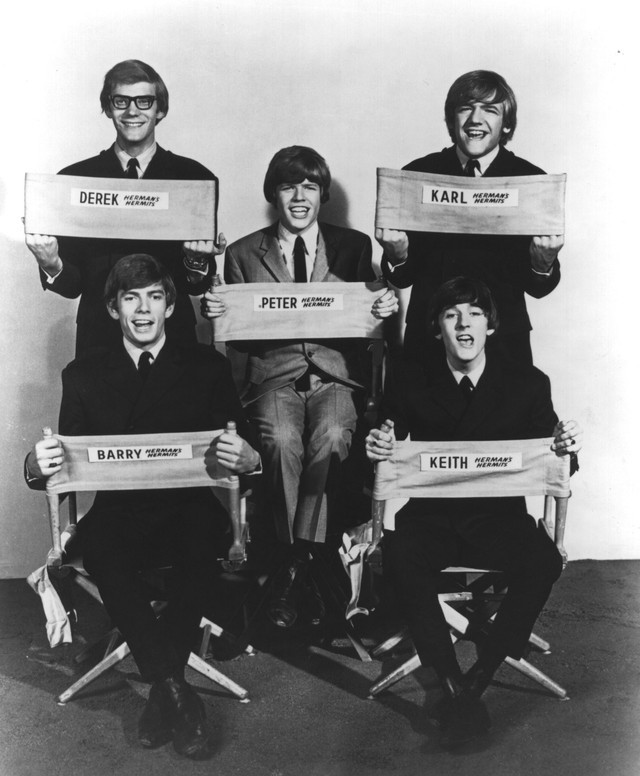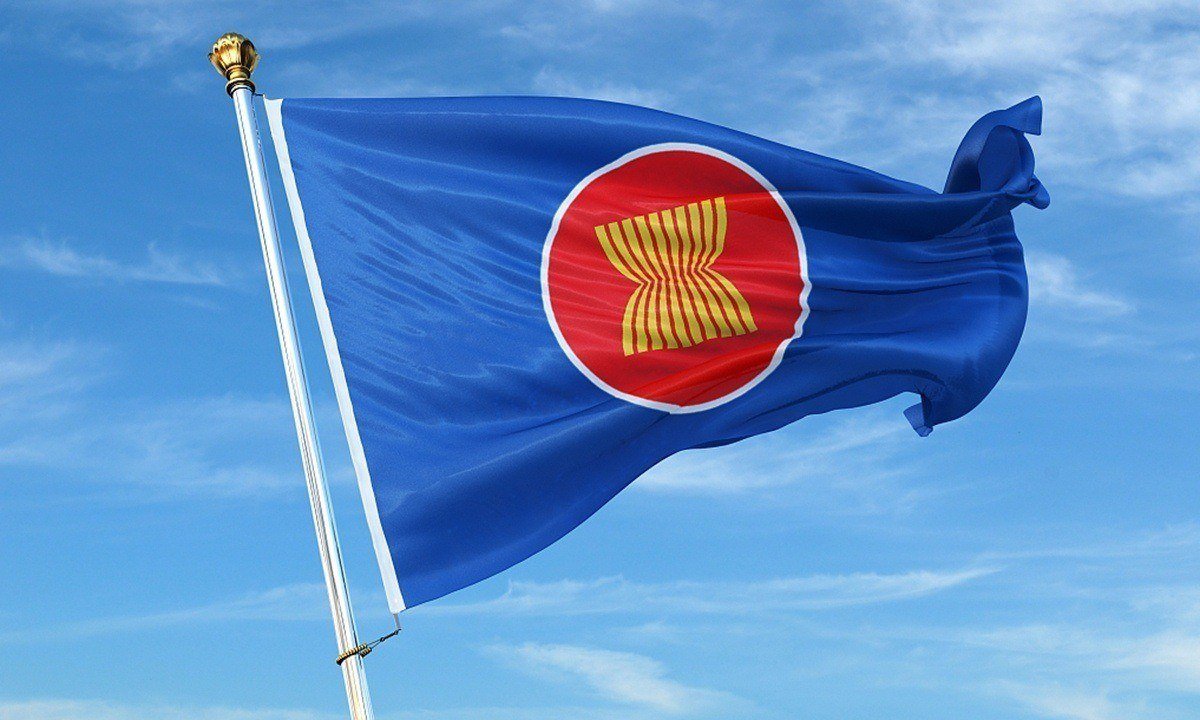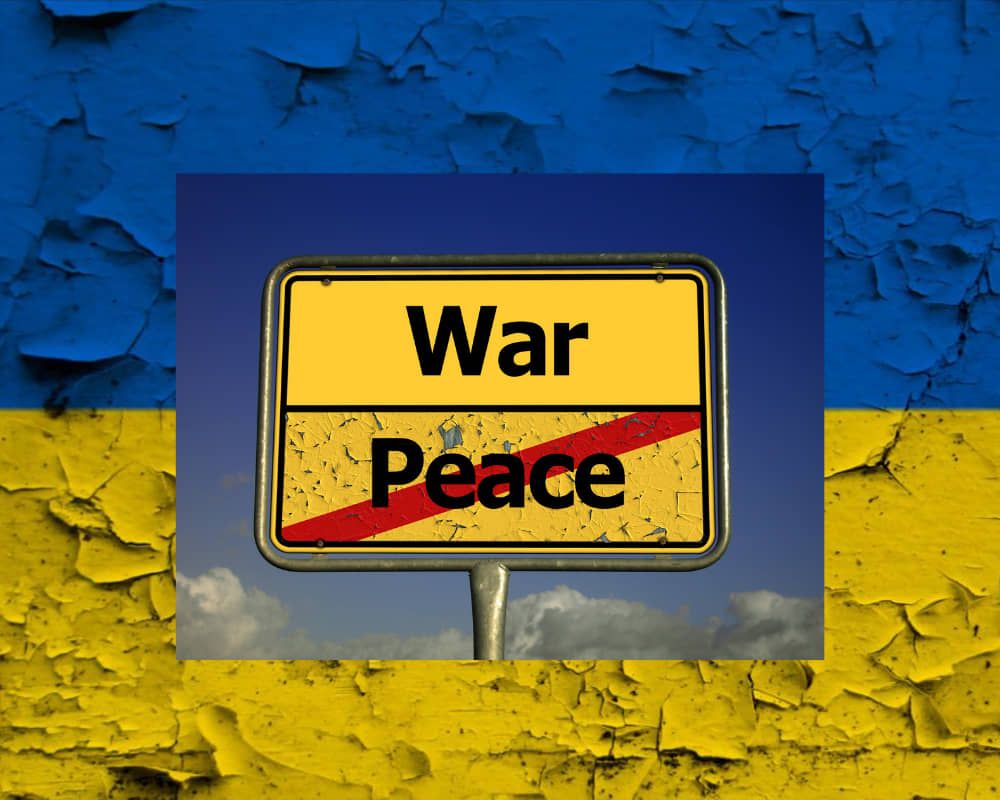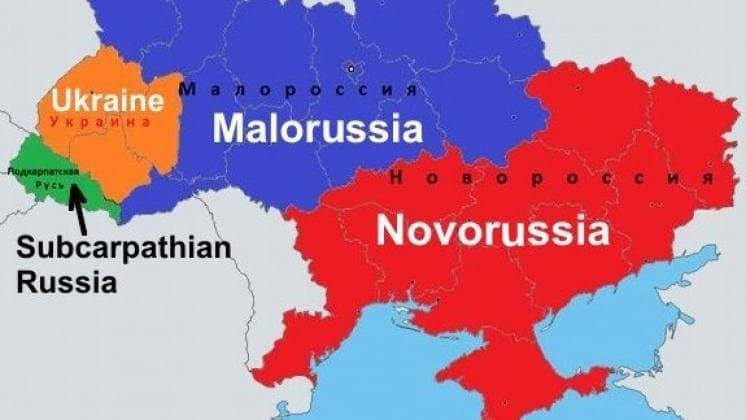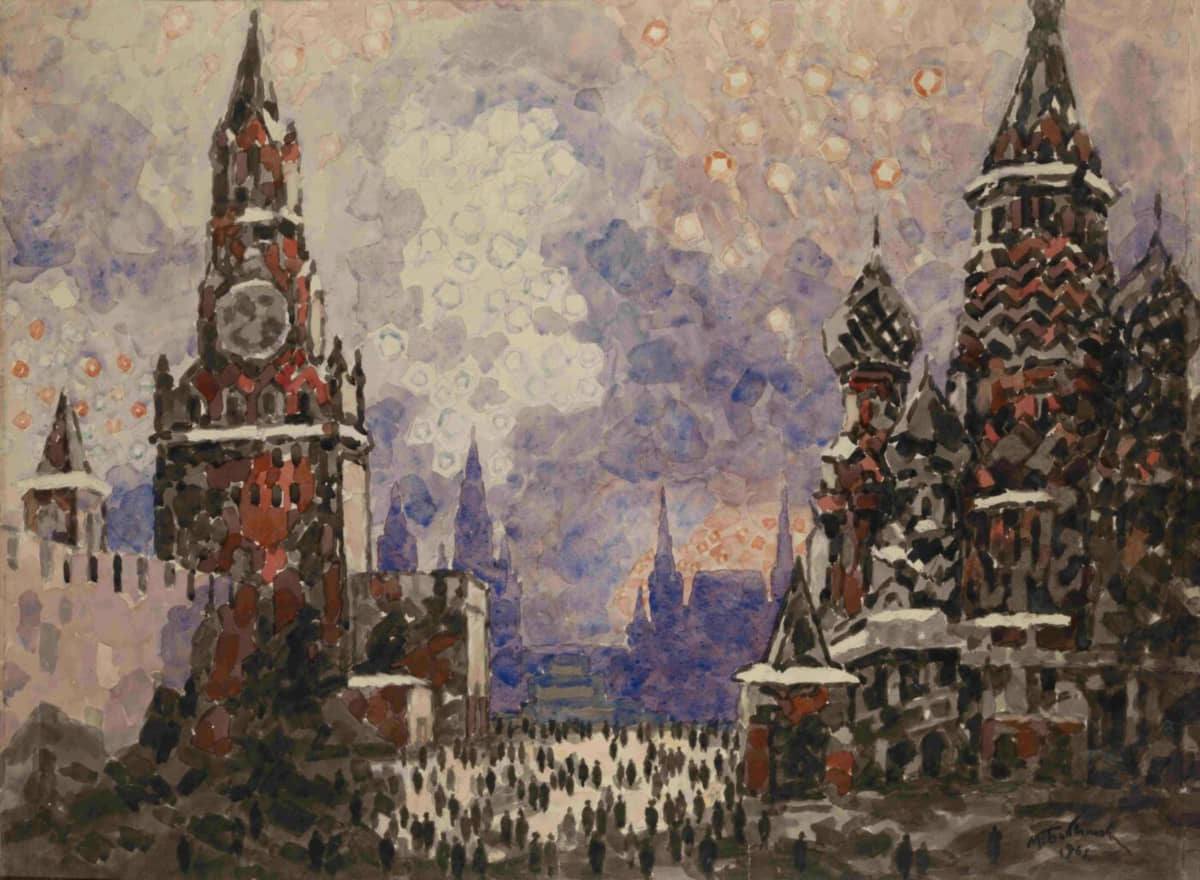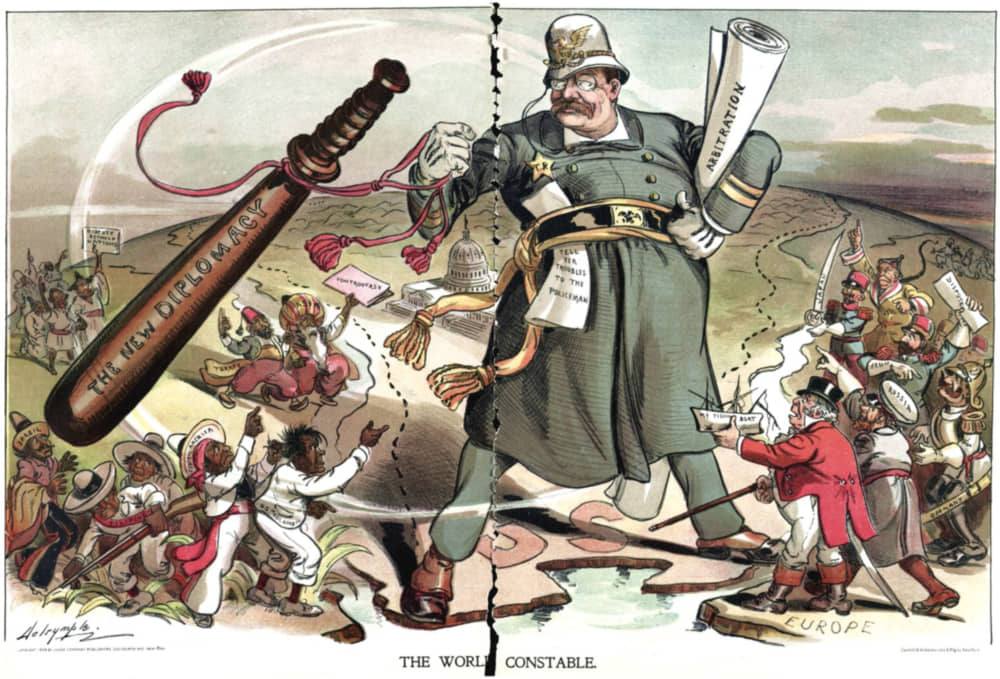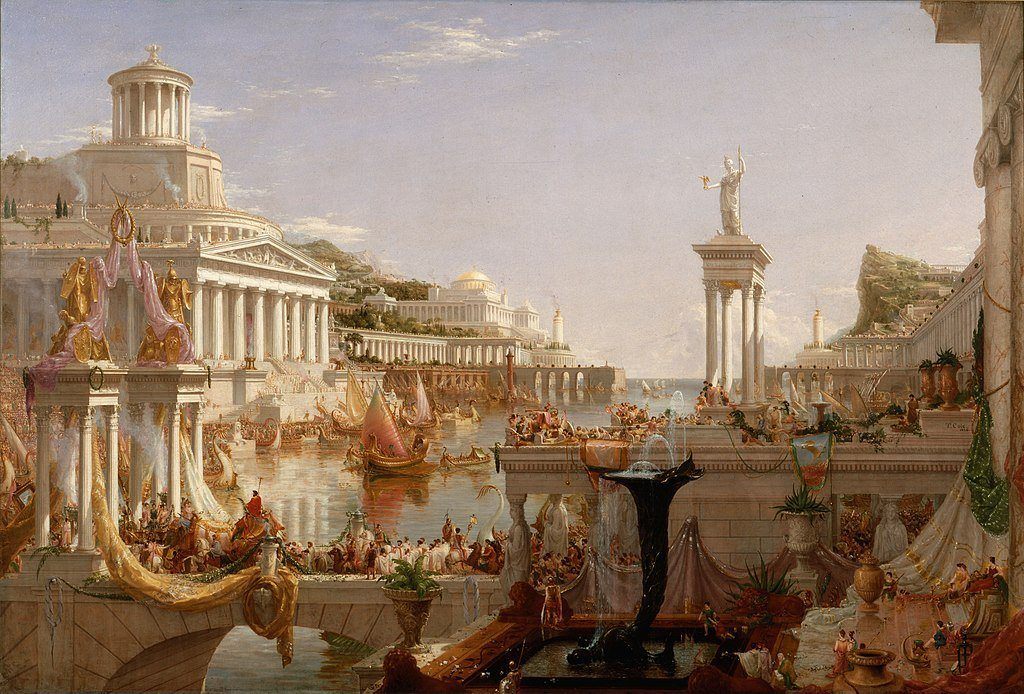I am not a Catholic. Odds are if you consider yourself a serious member of the Church of Rome you are not one either. The more Marys and John Pauls you have in the backseat of your transit van, the more scapulars and rosaries you use, the more you rack up those Latin Masses and novenas, the less likely you are in fact a Catholic, according to how that organization defines its membership. In this, we have much to unpack.
If the following essay is unpleasant to read, it is just as unpleasant to write. It will mean putting to death many illusions we have cherished. At the core, we must understand that a Catholic is exactly what the owners of that corporation define a Catholic to be at the present moment, and not whatever definition we fancy. This essay is disillusioning. To be disillusioned is a good thing. It is a blessing to be free of one’s misapprehensions.
To shoulder our task, we must look at history both sacred and profane, we must come to grips with the consequences of Church councils past and Church happenings present, and we must sound out the spirit of legalism, a tool which the Fathers of Rome have embraced for some time.
More than anything we must extricate from our conversation that fondest of fallacies, dear to men in general, dearest of all to conservative sorts: we must cease speaking of things as we would like them to be. We must speak of things as they are. Lastly, we will break out our divining rods as we look towards the future of Catholicism. This future may yet be bright, but only if Catholics—or rather Catholic-ing people—accept the stark impasse they are at. It’s a checkmate so adamantine and painful that even the most ardent traditionalists will not acknowledge it.
And towards what end do we do this? Towards the love of the Church of Christ, the Catholic Church.
The Impasse
Things are deadlocked. They are at such an impasse that I need only mention “The Crisis,” and I am likely to be understood. Some men make careers detailing the blow-by-blow decomposition of Catholicism in the Postmodern West. They plumb villainous and criminal activity of villainous and criminal men, and they expose the mediocrity of forgettable men; from an endless well of indignation as loud as it is innocent, they critique the oatmeal thoughts of oatmeal-brained men; and these commentators have an endless store of indignation towards banal suburban liturgies attended by banal suburban men. But you shall not put a stumbling block before the blind, Leviticus says, and you shall not flog a normie for being unimpressive, I say. Given these obvious dynamics I do not see why the Catholic meltdown forever renews itself in outrage from the devout. At the end of the day, for all their verbosity, there is little value in punditland.
It is remarkable that for half a century Roman Catholics have thrashed about concerning the state of the Church. The topic has filled a lot of conference halls, it has sold gobs of books, and it has gotten many, many clicks online. This talk has solved precisely nothing. However, in this exercise papists are not different from the secular conservatives they so often get used and duped by. In both instances, and many others besides, people are not grasping the dynamics of the communities they associate with.
In response to The Crisis people have developed certain solutions. These express themselves in a spectrum of formal and corporate works which include everything from participating in online forums and radio shows, to establishing congregations complete with seminaries, schools, pilgrimage agencies, and even rest homes. Beyond these efforts, printing houses and websites advertise bushels of theories about Vatican II, who is the real pope, and, especially, why the older liturgical books are allegedly better than the new ones. The diversity of these solutions are superficial. While these perturbed people exert their efforts in different directions, sometimes heroically be it said, their appraisal and solution to The Crisis is ultimately the same.
Namely, to some extent or other these people, these orthodox Catholics, or devout Catholics, or traditional Catholics, or conservative Catholics, these flattering-adjective Catholics, believe that Catholicism is occluded by the Church hierarchy at present. However, mirabile dictu, they say, real Catholicism can be accessed merely by doing old Catholic things. If one does these things enough, and if one gets enough people doing them, then soon or late The Crisis will be over. Problem solved. Crisis solved. The entire spectrum of Catholicisms (sic) believe these points and adhere to this approach. Their denominations only differ in degrees and methods.
Alas, this is a dead-end. You see, the same Catholic tradition these commendable people believe they are maintaining in fact forbade their methodology 150 years ago. Doing and believing and living holy Christian lives does not make one a good Catholic. Being in perfect legal submission to the regulations and teachings of the Diocese of Rome makes one a good Catholic. To wit, I adduce Canon 205 of Rome’s Codex, “Those baptized are fully in the communion of the Catholic Church on this earth who are joined with Christ in its visible structure by the bonds of the profession of faith, the sacraments, and ecclesiastical governance.” Again, this is how the Roman Catholic Church defines its membership, and it is only their definition which matters. A man acting under any other definition is holy and wholly LARPing. This is the dark wood of legalism.
As we proceed there are some nuances I ought to address so that I am understood correctly. I have no substantive disagreement with the spread of approaches found in the so-called traditional groups mentioned above, their quirks, egos, theological blind-spots notwithstanding. However, because I apprehend the conclusions of Vatican I and the entirety of 19th Century ecclesiology, without a shadow of a doubt neither I nor the sects above are Catholic. Post-1870 the Church is whatever the Churchman say it is at the moment, and there is no doubt from the pope down to the Curia down to the college of bishops, the presbytery, and the vast bulk of the Christian people that likely you and certainly I with our mantillas and our missals are not a faithful representation of the mind of that community.
Until the legalism which has copper-fastened the Bride of Christ to barritry is dissolved The Crisis will not change. It may ameliorate for a season, perhaps a Pius XIII or a Benedict XVII may toddle along, but as long as legal path prevails The Crisis will return soon or late. Yes, I am saying that your conservatives and your traditionalists and your orthodox Catholics are not part of that religion, but I am saying the same of myself.
Also, it is not my purpose in this essay to change people’s beliefs. Those who adhere to any denomination of flattering-adjective Catholicism may believe what they wish. It is my intention to establish in triplicate that a man who chooses to operate a Roman Catholic municipal person, what the Vatican’s Codex calls a “faithful,” does not have the liberty to entertain, even mentally(!), the type of critical discourse which has become mother’s milk to many of the devout, much less does such a municep have leave to publicly act on this discourse.
Furthermore, I assert that if we wish to continue this critical tone we must respect the Catholic Church enough to admit we do not fit their definition of a Catholic, particularly concerning the canonical clause on “government” above, and that appeals to anything before 1870 are totally moot for reasons I will lay out below.
I am in hearty agreement with the general conclusions of the so-called traditionalist so-called Catholics. They are correct in discerning any number of ruptures. Furthermore, they are correct in comprehending the gravity of these ruptures in “the big picture” of things, and that these breaks undermine the authoritative claims of Catholicism. I believe the traditionalist critique is correct, but I remind myself that beliefs are worthless. Only what is matters. Alas, neither I nor any who hold such traditional positions match the definition of the Catholic Church’s canonical “faithful” status, a designation which is identical to the “citizen” status in those lands ruled by the Bar Association. Recall the Church’s definition of itself (not yours),
[The one Church of Christ], constituted and organized as a society in this present world, subsists in the Catholic Church, governed by the Successor of Peter and by the Bishops in communion with him, although many elements of sanctification and truth can be found outside her structure; such elements, as gifts properly belonging to the Church of Christ, impel towards Catholic unity.
This quotation hails from part eight of Lumen Gentium. The clear division between the Mystical Body of Christ and the juristic, structural Church may startle many lay Catholics who assumed the realities were one and the same. But there you go. One will often find in the documents of legal-land a remarkable honesty. Perhaps the Vatican’s attorneys were just unconsciously blunt and illuminative (and all Roman priests are attorneys).
Oddly enough, while this part of Lumen Gentium is one of the stock faults traditionalists see in the late Council, they have internalized that selfsame bipolar thinking. In their mental edifice it forms a necessary lynchpin. Keep your ear to the track long enough and you will hear from them, as perhaps you’ve said yourself, mention of “the Church as it” and “the Church as her.” In other words, I can ignore the Novus Ordo and Pacha Mama and St. Paul VI at the United Nations because that’s only the structural Church (“the Church as it”). I may ignore all that jazz in favor of what I believe is real, old-timey Catholicism (“the Church as her”). Alas, alas, not so fast. As Lumen Gentium instructs,
The society structured with hierarchical organs and the Mystical Body of Christ, are not to be considered as two realities, nor are the visible assembly and the spiritual community, nor the earthly Church and the Church enriched with heavenly things; rather they form one complex reality which coalesces from a divine and a human element.
You see, here’s the rub: one may not motte-and-bailey their way out of The Crisis. Municipal Catholics, those the Vatican numbers as its faithful, must acknowledge the Church as it and she are one and the same. The type of mental, vocal, and lived out picking and choosing many of us Catholic-ing people do with our faith is simply a walled-off option. We must either keep Catholic-ing and renounce representing the Vatican’s legal person, including pretending we are part of that organization, or sit down and shut up.
Lastly, so that I am understood at the outset, there is a large slice of humble pie we have to eat as we digest the thesis of this essay. It happens that the same sort of people who go in for Latin Masses and rosaries and catechisms, many of whom I am arguing are not Catholic according to Rome’s definition of its membership, are the same sorts who give the greatest grief to protestant and Orthodox sectarians. Grasping the ramifications of Vatican I, other binding 19th Century documents, and canon law, it looks like we are all schismatics now. Since many Catholic-ing people have reached the exact same conclusions and praxis as the Greeks from 1000 years ago and the protestants of 500 years vintage, perhaps we Catholic LARPers can get off our high horses. We should put a sock in our haughty Extra Ecclesiam jabber, at least until we actually join the Ecclesia we’re so fond of giving others grief for not belonging to.
Lastly, a note on punctuation. Throughout this essay, as you can see above, I refer to Christians who hail from Reformation communities as lower-case protestants. This was the original way various Reformation congregations referred to themselves, and it most accurately expresses the truth which the reformers were grasping at. Namely, protestantism is an attempt to live a Christian life outside of the legal-canonical structure which predominated East and West until that time. Statutory structures (i.e., legal systems) have many things to recommend them. Nothing has yet been found which so effectively harnesses human attention and energy. However, statutory structures are totally fictional. For the Christian this proves to be a pickle. On the one hand, how can one worship reality, Logos, while at the same time swathing the day to day functioning of the Church in the dead fictions of barrity? On the other hand, how can there be a visible, hierarchical, incarnate Christian community, the Church in other words, without something like a legal system? It is not our work to answer that question here. What I will point out, however, is that because every single legal word, statute, jurisdiction, and person is make-believe it is therefore dead.
There is an entropy here which has consistently worn down every vital reality which has bellied up to legalism. Every community, every religion, every philosophy, every nation, every man which has put itself into barritry irresistibly begins compromising their principles. Find me one man or community in legalland which 10 or 20 or 100 or 500 years in has held to their original idealism. The living cannot be wed to the dead. This is a pickle indeed. Like “christian,” “protestant” was a verb, then it became an adjective; 500 years on it ends its days as a noun. This is the way of all flesh. In fact I suppose every spiritual community in history has known this sadsome slide from lived reality to dead object. Nihilominus, in no sense does protestant appear lower-cased in this essay in a pejorative fashion. Insofar as traditional Catholics are in no uncertain terms protestants, I believe the antique usage of protestant captures the reality both Reformation Christians and traditional Catholics hunger for: Christianity, a verb once more!
You see, flattering-adjective Catholicism is a hodge-podge of expectations which have largely developed in response – always in response, like all failed conservatism, never proactively – to The Crisis. It is so much a creature of discourse and argument that orthodox Catholicism has unwittingly wandered down alleys trod centuries or millennia ago. To wit, the spectrum of traditionalisms has arrived at an ecclesiology which is substantively somewhere between Eastern Orthodoxy and American hoedown protestantism. Aesthetically they are surely closer to the former, logically they are closer to the latter. These dear Catholicish souls, commendable for their loyalty to a religious structure which has done them great pastoral wrong, tragic for their inability to understand the governing principles of their nominal religion, essentially have created an ideal Church, i.e., a Church of the romantic heart, of the mental, of the numinous, of the World of Forms.
With full awareness for how shoddily Catholicing people of traditional attachment have been kicked about, with every agreement for their aesthetics and spirituality, with all regard for their occasional heroism, how in God’s name does the “Eternal Rome” construction of Marcel Lefebvre, how does the “Faith of the Ages” which these people go on about differ from the Orthodox fantasy of the “Church of the First Millennium” or the protestant errand of reviving the early days of The Way?
Accepting the above thesis is only half our work. Once we painfully come to grips that decades of battling to restore Catholicism has been built on a foundation of sand, because all legalism is sand, once we swallow the hard pill that those of us who have grounded our identity on being Catholic are not in fact members of that faith, then we turn to the exciting part of our time together. What might Catholicism look like once it is freed from the tomb of a 19th Century ecclesiology and mindset which has both caused The Crisis and yet makes void all prevailing solutions of the same?
Fanboys Out!
At a certain point one must come to terms with reality. For many of us this is difficult. Perhaps we have experienced the unhappy condition of a friend or relation whom we hope will shape up in some way or another. Maybe we have known some kind of long-term estrangement, but we keep alive the hope that so-and-so will one day walk through our door. In some scenarios at some times it is no longer rational to maintain these hopeful positions. Alas, the bottle wins out b’times, the porch light stays on never to embrace a prodigal’s return, and the sick child wastes away. After a point to continue in hope is to live in fantasy.
No man ever held the Catholic vision of life and society as dear as I. In the second part of this essay I will describe how I blew a decade of my life trying to instantiate that vision. But time moves apace and I’ll just say here that it is literally impossible to want something for a society whose participants are not interested. So little by little among a thousand disappointments and failures and betrayals I saw among the flatteringly-adjectived that American Catholics are as myopic as protestants in their comprehension of the height and depth and breadth of what Christian life and society promises. All they wanted was their family and their Jesus, the world be damned. And so little by little my idealism died. I saw what was up. It’s cold comfort, but it is a good thing to be disillusioned.
Howsomever, as regards the Church that final disillusion was their participating in the Coronavirus Lockdown. That event was such an admission of faulty sacramental understanding, such a lack of faith interiorly and discernment exteriorly, and such a betrayal of a damn sight more people than you’d imagine, souls who rely on the Church not just for religious services, but also for basic social solace from the blast of cold modernity, that I should never think I will reclaim my long-suffering esteem for Catholicism.
Oh, don’t worry, I still keep up with my rosaries and my brevaries, and my holy boozy bones darken church portals exactly as regular as Rome’s shuffling lawyers have scratched out “obligation.” And my heart sinks at the precarity of saying this, but as lame and crooked as its clerics and attendees are, Catholicism is the only shovel out of the mess which the Enlightenment has brought us to. Still and all, after Covid my long-dying hope that Catholicism would prove a tardy counter to Modernity in my lifetime gave up the ghost.
More than my worthless esteem, however, the decision to belly-up to the Coronavirus hype killed in me my filial tendency to spin or downplay obvious Church mismanagement. For many moons it was obvious to me that the Church was part of the New World Order, but I tried to paper-over things when I saw them. This modest grace I do not extend to myself, and it is not something I extend to other actors on the world stage, but for decades my piety pushed me to “cover of nakedness” of Catholic governance and society. After two American waves of sexual scandals strung out over 20 years, after less flashy but more numerous financial wheeling-and-dealing, and after a tuneless and ham-fisted liturgical reform, as pastorally inept as it was iconoclastic, Covid was the straw which broke the camel’s back. Like a child watching his alcoholic father drink hand sanitizer, I can no longer fanboy for the Church. I’m not going anywhere, but I’m not papering over things either. And this includes nonsense in traditional Catholicville, they who think they most have their act together, they whose heads are as big as hot air balloons. Ergo this essay.
Ah, musha, you say, feeding me your best and most canned apologetics, one mustn’t judge the Church on the failures of her members. It is besides the point to mention that a tree can indeed be judged for its fruits. What is on point is that my difficulty is a bit more nuanced than leaving the Catholic Church. As I mentioned, I said my rosary today and I mean to be at Mass this Sunday just as I was last Sunday. I’m not going anywhere. But after Covid I must admit what you conservatives will not. Namely,
1) While the post-Conciliar traditionalist criticism is correct in its general outline,
2) The de jure Vatican I papacy permits each and everyone of these post-Conciliar aberrations to occur (i.e., Again, after Vatican I, Catholicism is whatever the people in the Curia says it is),
3) That a Roman Catholic corporate faithful does not have the liberty under the Syllabus of Errors, Pastor Aeternus, Denzinger, Ott, nor canon law to hold any critique related to point one above. Thus,
4) The only honest solution is indeed to keep doing Catholic things but not to claim to be part of that communion. To do otherwise is to lie to the agents of that
5) organization and oneself.
Two Worldly Comparisons and Three
“We The People”
Let me explain this selfsame tragic disconnect within two other communities whose denizens fail to grasp the true picture of things. These are they who advocate for social and political conservatism and those who work for educational reform. Like your orthodox Catholic sorts, I am profoundly sympathetic towards these positions and these communities. However, like Catholics, conservatives and pedagogues are clueless as to the actual dynamics at play in their respective bailiwicks.
For example, if one does not understand that legal states are foreign to the men they allegedly rule over, political happenings become one fluster after another. Many a talk radio host has made a career off of this reality. Taxes, wars, zoning, health regulations, inflation, and many more things besides, make no sense until the moment one realizes they are not part of The People. You indeed are a person, but you have no truck with The People to whom civil servants so oft’ refer. When this understanding happens, when one grasps that legal governments exist in a state of enmity towards those they rule, all the “crazy” and “insane” goings on in the political order are quite sensible. One realization can illuminate everything.
Occupy Wall Street, from the dear dead days gone by, and the late Ottawa and Washington convoys are examples of this reality at play. Those American and Canadian patriots could quote all the charters, and bills of rights, and court precedents, and moral laws they pleased, but The People—the bloodline descendants of those who constituted their nation-states generations ago – have no obligation to the Tom, Dick, and Harry regular people. As we will see with the educational critique, politics are not broken. They are working just fine. Everything is running smoothly, but only if we grasp the principles. If one does not get the principles at play then they run the risk of wasting an entire intellectual life in conservative-land by forever reacting to the symptoms but never the cause. Those Occupiers and those Convoymen were beautiful and democratic and wholesome, they were the best of their peoples, but like the orthodox Catholics, their efforts were moot because they never grasped the societies they operated in.
“My” (Birth Certificated) Children
Another example comes from my own avocation of education. It concerns public schools. Nowadays, in the best tradition of cringy conservative lingo, “government brainwashing camps,” have replaced the expression “public schools” in some circles. (Your real big shots use “indoctrination” in place of “brainwashing;” thus, “government indoctrination camps.”) What was once a pointed and thoughtful jab when used 20 years ago in a measured way has become a tedious pitter-patter hurled by parents, typically women, at America’s latest national pastime: emotional school board meetings.
Often at these sadsome gatherings two fallacies appear. One is that parents believe they have lawful rights over “their” children, the other is that public schools exist for the betterment of pupils in se. However, like the civic example above and like the Catholic one we’re dwelling on throughout this essay, there are profound misapprehensions at play by parents, and these lead to false conclusions and false solutions. Let’s take this nice and slow, partner.
Any child enrolled in a public school, and any state-registered private school, can only do so if they have a birth certificate. Anyone with a birth certificate—a process always initiated by parents, mind you, never by the state—is forever alienated in law from his former natural parents. By filling out the certificate application Daddy and Mommy unwittingly declare to the state that Junior is a foundling. They declare that Junior has no estate with them in law or in fact. Under pain of perjury Daddy and Mommy freely state that this selfsame Junior which came from their bodies is effectively a lost child. Via the birth cert application Junior is declared to be no different than a kid found wandering the mall or the streets or the woods. In benevolent response to this declaration the state seamlessly returns their new ward, Junior, back to the custody of Daddy and Mommy. The only difference is that now Daddy and Mommy are now mere legal parents who henceforth have conditional custody of the state’s child, Junior.
This is exactly what happens when we register our newly bought cars at the DMV. One’s actual ownership of the machine is traded for mere legal ownership which can be regulated by the state (e.g., speed regulations, taxes, seatbelt requirements). By the bye, anyone care to guess what happens when the Catholic priest takes the newly baptized baby and fills our the baptism certificate?. I care not whether this is good or bad, nor if this transfer of authority is moral; I care not what I believe about this, nor what you believe about this. All that matters is that this is the process at play. All the wine moms east of the Mississippi can roar about the school board’s obligation to them and “their” children, but until they grasp what they did in that hospital, nothing will be grasped.
“Schools are Failing”
Secondly, at these school board meetings we often see objections to school curricula. Now the only thing more given over to fads and fancies than the world of pedagogy is the world of conservative bellyaching over schools. Like the parental mistake above, namely the misunderstanding parents have about whose registered children in fact attend registered schools, so here too people are so wrapped up in what they believe about schools that they do not grasp what schools are.
Public schools are municipal subdivisions of the township. Therefore, they are legal entities. Like all legal entities, public schools operate under the circumscribed parameters of legal language. In other words – and this is where we’re going as we return to the religious theme of this essay – it does not matter what I think the word “public” means any sooner than my impression of who constitutes “the People” matters. It matters what the public school board says “public” means, it matters what the state says its schools’ title means. At base it really only matters what legal attorneys say a legal entity is. Thus, like anything legal, the word “public” has a specific meaning. Public means commercial. Thus, the raison d’ être of public schools are to produce commercially successful consumers. Once all these points are understood one’s conclusions must be reevaluated. In the terrible justice of the points above, one sees the farce which is the critique of mainstream education. Pagan, Christian, or Jew, black man or white, no one denies that public schools do a solid job of making public—commercial—people.
As for Them, So for Us
The same goes for Catholicism. In place of, or in ignorance of, an appraisal of things as they are, to confront The Crisis the lot of us have thrown up our beliefs as to how things ought to be. More or less we believe we can ignore or actively scorn the things from Rome we believe don’t fit in our idea of what Catholicism is. This the Church does not permit. Remember that beliefs do not matter, fundamentals do. Post-1870 there is no appeal to anything outside of this moment’s Vatican, and the Vatican says a Catholic is someone in complete external and internal submission to Rome’s governance.
Once one understands that The Crisis of the present Roman Catholic Church is the logical outcome of Vatican I, and indeed that it is the result of trends going back nearly a millennium, and once one comes to accept that it is absolutely forbidden for Catholics to disagree with the popes, and the councils, and the liturgies of the Church, vocally or in the quiet of one’s mind (again, !), one can see what a fool’s errand the devout Catholic world has been on. Consider this statement from session four of the First Vatican Council,
Wherefore we teach and declare that, by divine ordinance, the Roman church possesses a pre-eminence of ordinary power over every other church, and that this jurisdictional power of the Roman pontiff is both episcopal and immediate. Both clergy and faithful, of whatever rite and dignity, both singly and collectively, are bound to submit to this power by the duty of hierarchical subordination and true obedience, and this not only in matters concerning faith and morals, but also in those which regard the discipline and government of the church throughout the world.
Pay attention to that last clause. “Discipline and government,” include everything trads gripe about. After 1870 those topics were off the table for Catholics to buck up against. And remember, in case you thought you could out-lawyer a lawyer, this cutting criticism from Pascendi Domini Gregis: “In the meanwhile the proper course for the [‘modernist’] Catholic will be to proclaim publicly his profound respect for authority – and continue to follow his own bent.” Those of us who drink deeply at the well of Western faith, orthodoxy, and tradition must simply admit we do not believe, much less abide by, the present tense de fide Magisterium of the Roman Catholic Church. In trying to be traditionalists we became modernists.
Reorientation
There’s a lot going on here, so let’s catch our breath. Again, firstly, this article intends in its own little way to ultimately advance the Catholic religion. There is no gotcha-ism here, no amble of a secular mien. But we must come to grips that a large segment of men who are often the most erudite, personally devout, and occasionally admirable are in fact not Catholics according to the present parameters of their religious leaders, and remember it’s those leaders who decide who is and is not a member. Not God, nor you, nor some appeal to the past defines a Catholic; once Rome threw itself headfirst into the barrister’s make-believe world only Rome gets to decide who is a Catholic.
On a note of sympathy here, I also do not suggest anything sinister in the legalism of Roman Catholicism either, neither its historical bent as compared to the Eastern Churches, nor ts 19th Century doubling-down on barratry. The statutory system is a deliciously tempting tool to organize human activity. However, because everything and anything legal is artificial, and because religion deals with reality, soon or late there must be a correction. Catholicism is paying that pound of flesh for its legal dalliance right now. However I have never sensed anything wicked or manipulative in this unhappy tryst.
One must also remember the context of Vatican I, its ultramontanism and its legalism. The 19th Century West was fast dechristianizing. Surely Churchmen thought they could fight fire with fire by reimagining the Church itself as a nation on parity with the rising nation-state order. Again, this was a regretful choice in hindsight, but in the moment – with the Church ringed ‘round with Masons and businessmen and barristers, with the Papal States literally compassed by Garibaldi’s barking legions – it may have seemed the best option. Rome’s decision was regretful but not wicked.
Play Time
Imagine if I filled my house with McDonalds paraphernalia from the ground up. Imagine if every shelf had a Happy Meal toy on it, every table featured menus going back to the ‘60s. Imagine if I forgo a staircase in my home for a slide, and if I chose neither carpet nor tile for my downstairs floor, but instead I put in a ball pit. Imagine if I dress in a McDonalds’ uniform on one day and as Ronald McDonald the next. Would any of this make me a member of the McDonalds’ organization? No, it would all be a Live Action Role Playing, it would all be LARPing. Even if I cooked their same food, and knew their history, even befriended the local managers and employees, I would never be a member of McDonalds following this methodology. I must be hired to work there, and to be hired I must fit McDonalds’ criteria and no one else’s.
This silly example is the condition which a good lot of Catholic-ing people are in at present. In place of the actual Church headquartered in Rome, and way-stationed in every dioceasan cathedral, and in every local town, these hapless and holy souls have more or less created a mental church, an ideal Catholicism, an “eternal Rome” which consists of whatever beliefs and practices the individual considers “traditional” (read: a late-19th or early-20th Century custom). In their quest for real Catholicism the flatteringly-adjectived have arrived at an ecclesiology somewhere between that of protestantism and Orthodoxy. Catholics have fundamentally failed to understand how the Church defines itself.
It’s Not as Easy as That, I’m Afraid
It’s only since traditional Catholic-ville left me that I’ve had cause to marvel that, while I heard loads and loads about Trent and Vatican II, while I even got plenty of Quas Primas and Pascendi, I cannot recall a single instance of Vatican I being referenced in all those 15-odd years. Reflecting on things since then, I see why. Adjective Catholics do not speak of Vatican I because that Council, which their logic binds them to in a way immune to their typical lawyering, defined the Magisterium in such absolute language that their typical appeals to previous usage, earlier synods, Church Fathers, famous Scholastics, saint quotes, and reason itself became dead points after 1870.
I assert that there are two points from the First Vatican Council which press upon the nerve of The Crisis. Most people involved in the dialogue about The Crisis, those laudably knee-deep in working to right The Crisis, come and go and live and die without ever considering these points.
The first is that the parade of novelty and rupture which has altered everything starting with St. Pius X’s fiddling with the Breviary to Pope Francis’ latest off-the-cuff heresy is absolutely and comfortably within the ken of the Vatican I papacy. (By the by, whatever his personal holiness, it is astonishing that Pius X is considered to be a hero by traditionalists precisely for his alleged fidelity to the liturgy. His trespass upon the Office gave precedent 50 years later to the Fathers of Vatican II to adjust the Mass. There would be no Mass of St. Paul VI without the Breviary of St. Pius X.)
New Masses, kissed Qurans, Communion for those in concubinage, Communion for those who publicly suborn murder, no Communion for people who want to go to the Latin Mass, yes, synods for days, each and every one of these things is permitted by the logic of Pastor Aeturnus. This is where the pious err. There has been no break with the past, at least not according to Church the reboot of 1870.
Indeed, if I may adduce America’s secular conservatives once again, isn’t it interesting that for as long as we have been following the state of the land the lot of us have seen nothing but “unconstitutional” actions. Literally nearly every action which state and federal administrations implement day in and day out is in shouting defiance of 1787. We can do the thoughtless thing as we roll our eyes at “the liberals” or “the Deep State,” and move on to our next outrage five minutes hence, or we can consider if perhaps another dynamic is not at play. Maybe there is a reality which we have never considered and one which better explains what otherwise appears to be a massive departure from America’s founding principles. As it happens, the latter is the case.
The answer, as plain as the nose on our face, is that the U.S. Constitution is not in effect. Period. The Constitution has had no force of law since March of 1861. That’s our answer. Go read the Congressional Record for March 28th of that year and learn what “sine die” means, and if that organic Congress ever reconvened. Do that and you can stop carrying around that pocket Constitution.
The same goes for Catholicism at this hour. Its former methodology ceased to exist on July 18th, 1870, the day Pastor Aeternus was passed. But we don’t want to face it. It’s too painful. As long as we are under the misapprehension that a pre-Vatican I methodology is a permissible route to take out of The Crisis, as long as we try to quote the Fathers and the Schoolmen and the old popes, we will be as pitiable as the dear and clueless Americans ranting about their voided Constitution, or the admirable and naive Canadians jabbering about their Charter of Rights. For a Catholic to cite anything prior to 1870 is as useless as an American arguing at the Department of Motor Vehicles about his right to travel under the Articles of Confederation, or for that matter the conclusions of Napoleonic Law, Islamic Fiqh, or the wisdom of Shaka Zulu. Those points may all be right in se, but they have no standing within the DMV system. Likewise, whatever faith of our fathers existed pre-Vatican I had no standing thereafter.
The second point which follows from the Vatican I ethos is that almost every critique of the Church across the diverse spectrum of Catholicisms (sic) is off the table. Everything from individual griping about alter girls on the way home from church, and a thousand annoyances besides, to the profound but restrained discourse of FSSP and Institute attendees, to the fantastically erudite theories of the SSPX, SSPV, Resistance, and sectarians farther afield, every moaning and groaning about Church administration from the small to the large, was completely shut down a century-and-a-half-ago. In our theories and criticism of Church development this last century we have run counter to the Oath Against Modernism we’re forever lauding when it says,
I reject the opinion of those who hold that a professor lecturing or writing on a historico-theological subject should first put aside any preconceived opinion about the supernatural origin of Catholic tradition or about the divine promise of help to preserve all revealed truth forever; and that they should then interpret the writings of each of the Fathers solely by scientific principles, excluding all sacred authority, and with the same liberty of judgment that is common in the investigation of all ordinary historical documents.
Have not the “anti-Modernist” conservatives taken this selfsame “modernist” tack? Have these Catholicing people not criticized Vatican II and everything since in the exact manner which their favorite secular and protestant radio hosts talk about any workaday topic? Do they not treat everything Rome has taught since the 1960s as being altogether on the natural plain?
Like many traditional-minded people, I will not square the circle. I cannot pretend to a continuity of Catholic belief and practice which is not altogether there. However, I’m not going to do the conservative cope and to set up a deus ex machina solution whereby I can ignore whatever I believe contradicts what I think Catholicism is. As queer as it sounds, the only honest solution is to keep doing Catholic things but stop pretending to be Catholic.
Let me put it this way. The Coronavirus regulations adhered to by the diocese by which I live, forbade the giving of Communion on one’s tongue for the length of the pandemic. Now I have my objections to Communion on the hand; those objections are somewhere different than your run-of-the-mill ones, but there they are.
As a result, I held back receiving Communion for much of those two years. This outrageous pastoral situation, however, is one which no one at that parish is aware of because I kept my thoughts to myself. My objection was altogether private. On the other end of the spectrum is Pope Michael of Kansas, USA. He is a most gracious gentleman whom I have had the pleasure of interviewing a couple of times as part of my show, A Conversation With. Given his vocation and his position, Pope Michael necessarily has a theological scaffolding and publicity miles away from yours truly in my Novus Ordo pew. Here’s the rub though: whether it’s my silent reservation or a public position like Pope Michael’s, or anything in between or elsewhere, neither of us are in union with the Syllabus of Errors nor with Vatican I.
If one might mentally wiggle out of Vatican II and all the 20th Century stuff they don’t like, take heed: you may not do so given the 19th Century and Pastor Aeternus. Oddly enough, the “whishy-washy” pastoral language so derided by the orthodox know-it-alls has itself allowed the traditionalist cornucopia of theories to spawn in the first place. Alas, the vaunted laser-beam language of the 19th Century Church leaves the lot of us ecclesiastically sprawling on a pin no less pitiably than Mr. Prufrock.
Of Death Rides and Dawns
Because we have focused on Vatican I in this article it seems right to me to make an analogy to that time. The Catholic Church is on a “deathride.” Deathrides were an interesting military feature in the 19th Century, that most literate era which came in with Romanticism and departed with Impressionism. In hopeless situations soldiers of the time would occasionally throw themselves against an irresistible foe in one last burst of virility. They might achieve their objectives, they probably would not. No matter, it was enough in any case to die with one’s boots on. The Charge of the Light Brigade is the most famous example of this; Pickett’s Charge is an American analogue, Easter Week an Irish. As the years wore on the frequency and enthusiasm for this kind of thing waned.
At this hour I have no doubt that a large percentage of upper clerics, including in the Curia, are intentionally liquidating the patrimony of the Church. If observation these past decades wasn’t enough, nor the Coronavirus shutdowns, the deliberate provocation and alienation of traditionally-minded people via Traditionis Custodes and the “Synod on Synodality” ought to seal the deal. Yes, the Church in its present constitution is on a deadride, one absolutely permissible according to parameters of Pastor Aeternus. But true to form in these, our chinless days, this deadride is less a Manilla Bay and more a Scapa Flow.
These military allusions from another century are most appropriate because it is from the 19th Century whence comes the ecclesiology which is smothering the Church of Christ. You see here’s the rub: both the hippest Novus Ordo devotee and the most self-imagined rock-ribbed traditionalist are both living out the consequences of Vatican I. Let me say that again, when Pope Francis utters his latest statement leaving the Acta Apostlicae Sedis men scrambling to explain him, and when the SSPX & co. have their latest schism over whatever minutiae gets their pride up, both are continuing lines of legal and ultramontanist thought initiated long before they came on the scene.
The Precision and Pain of Legalism
Let us explore dynamics of Catholicism which are rarely mentioned, the most operant dynamic being the nature of the strict or “legal” law.
In a sense the Catholic Church is the last department of the Western Roman Empire which is still functioning in our day. The Church is much like Hiroo Onoda, the last soldier of Imperial Japan, fighting on long after the fall of that regime. Imagine if your state or province’s government faded away but through happenstance the post office kept running. On a natural level this is what the Roman Catholic Church is: the last bureaucracy of the Roman Empire. Of course, the Church is more than an appendage of Ancient Rome, it is more than some antiquarian curiosity surviving into modernity. Because of that historical connection to the Imperium, Roman Catholicism adopted the governing system thereto. Again, I imply nothing underhanded here. This is simply an artifact of history. Just like the McDonalds example above, the Roman Senate operated under legal law, a system of organization wherein membership in a juristic body is solely determined by the creator and inheritors of the body. And so, the Church.
A Working Example
This talk of the First Vatican Council and the Syllabus has all been very theoretical. We need an example to clarify things. And have one we do in the mantle of public health. The discussion around Coronavirus vaccines illustrates the dead-end which the Catholic world finds itself in 150 years following Vatican I.
On the one hand is the Church corporate, a body which is tripping over itself to catch up to Mencius Molburg’s “Cathedral.” Thus, Rome approved their faithfuls’ reception of the Corona shots. If this counsel is advised or not is irrelevant; all that matters is that it is. As Pope Francis said, “Vaccines are not a magical means of healing, yet surely they represent, in addition to other treatments that need to be developed, the most reasonable solution for the prevention of the disease.”
On the other hand, we have Catholics who have refused the selfsame treatment. They do this on what they believe are moral grounds. And here as in a petri dish we see the sadsome corner which flattering-adjective Catholics are painted into. Unaware of their religion’s moral theologians, whose support guided their clerics to back the vaccines, these Catholics instead turned to radio personalities or online pundits to form their opinion. If they are right or wrong in their conclusions, if it is wise that Catholics’ have turned to secular radio hosts for their moral theology, if it is good they reason more like Evangelical sectarians each day, I care not. Like with the Curia’s position, so here.
All that matters is that this is the position many Catholics are in; that this position is not in conformity with their Church, and that to pretend that here—and in a hundred like places—there is not a direct break between their beliefs and their obligation under canon law to be in perfect external and internal submission to the Holy See is to play the proverbial ostrich. What is the point of having a de fide Magisterium, a Curial hobbyhorse a thousand years in the making, when people can quotemine themselves out of whatever they don’t like coming from Rome? What is the point of having a Magisterium if one can equally appeal to the tradition of Catholicism? How is this not different from Eastern Orthodoxy?
Wither Wanderest Thou?
What is to come of things? Who knows? God knows. This impasse over Vatican I will shake itself out soon or late. One scenario is that the structural Church will so belly up to an iron-toothed globalism that we will see replayed en masse the situation of the Church in France in the 18th Century. During the French Revolution the National Assembly erected the “Constitutional Church.” That organization served very much the same purpose which the Patriotic Church serves in modern China, namely, it made the Church a subsidiary entity of the State. Since the Tridentine seminary system was (and is) a factory for producing bootless yes-men, the Constitutional Church played into priests’ predilection for being told what to do by the civil power because now their bishop, after all, was a hireling of the state.
And here’s where things get interesting. You see, there was a problem in the French Church, called Gallicanism. This described the situation wherein the pope effectively had no jurisdiction in France. The agreement was distantly a relic of Conciliarism, made during about French military activity in Italy from an earlier age, and also detritus stemming from the Reformation.
The French Revolution forced an issue: did Catholic priests believe the pope had a supernatural jurisdiction which trumped the natural National Assembly or not? Up until 1789 there was a theoretical and humoring acceptance of the papacy in the Gallican Church. The Constitutional Church forced an issue which everyone was content to have remain ambiguous. Chinless seminarians became chinless priests, and you’ll not be surprised to hear that most French clerics joined the Constitutional Church. [As an aside, the nature of Roman Catholic clerical formation along the Tridentine model, a model wherein the candidate is profoundly—unbelievably—at the pleasure of his sponsoring bishop, joins Vatican I as being a twin culprit of The Crisis. If Vatican I has received little scholarly attention, then the seminary critique has received none.]
Then 1793 came and so did the radicals. The Constitutional Church was left to wither away until 1801 when Napoleon signed the Concordat that year. The result of all this is that Gallicanism resolved itself in a roundabout way. Those priests most given to it were either dead, had left religious life, or were so ignored by locals that they were a non-issue. On the other hand, those clergymen who refused to swear to the National Assembly all along not only won the esteem of the people, but their time “on the run,” as the Irish say of those on the outs with the law, produced a fervent, doctrinally solid, and organizationally competent presbytery. It is these men who rebuilt the strong French Church of the 19th Century.
My parallel between our situation and the Constitutional Church is not perfect. In our case the National Assembly is the Curia. However, the situation of Catholicism is not what it was two centuries ago. The Church in the 21st Century cannot and does not pretend to speak as an equal to the state. It scrapes and bows to globalists of various denominations and schemes like the NGO which Church leaders want the Church to be. Pope Francis will not be able to pull off with Mr. Schwab what Pius VII pulled off with Mr. Bonaparte.
For some time, the Roman Curia has subscribed to something like Arnold Toynbee’s concept of historical waves, and why it is that some societies survive and others do not. From Vatican II through to Laudato Si, the Catholic Church has been trying to crest an historical wave scholars have known is coming for the better part of a century. Only people with a deep reading of history and historical analysis can appreciate the dynamics of this. In this tack the Curia is to be commended for their provision. What we’ve lately come to call “The Great Reset” is something the Fathers of Rome have been bracing for since the 1940s.
Yes, the Curia is to be regarded on this point; but they have not grasped the sorts they’re dealing with. Again, Mr. Schwab is not Mr. Napoleon. The order which is rising will make the National Assembly’s anticlericalism seem quaint by comparison. What is coming wishes to remove root and branch all remembrance of God from the earth. It is a system of total fiction, including the falsification of the natural order down to DNA. It is a system I suspect only old John on Patmos could rightly tell us of.
Ergo, to my Gallican simile, the Catholic Church will belly up the powers that be. For a season all will be well. Those teeth will show themselves soon or late, however, and the episcopacy of the Roman Church will be as dead and marginal and scorned as were the Juring clergy of Napoleon’s day. The only functioning Church left will be the medley of extra-canonical (read: non-Catholic) “Catholic-ing” societies who have developed competent pastoral administrations as they’ve been “on the run” in their own way these last few decades.
I shudder to consider the jurisdictional, canonical, and theological mess that generation will face (a mess, be it said, which those same “traditional” groups have somewhat contributed to). The only thing that I caution future generation of is to be wary of recreating the same conditions which led to The Crisis in the first place. If people of devout habits do not confront that Pastor Aeternus created this situation, they will be setting back a minute hand which will strike again in the future. I know that to do so directly denies the Romans’ belief in their infallible Magisterium, but it is a pill which must be chomped.
Unless these post-persecution Christians confront what I am saying, they will be as luckless as American Conservatives wanting to go back to an 18th Century Constitution which set the stage for what the subsequent United States has become. One may keep setting things back to 1776, but they will only set themselves up for a future of Groundhog’s Day identical failures. But if those future churchmen men bravely extricate the habits of mind which have smothered the Church since the 19th Century, if they end Catholicism’s queer obsession with barritry and centralization, they will have an opportunity to truly revive tradition on a solid footing.
These points will be difficult, but capable men appear in every age. When they do, they will find that the Reformation is over. Secularism neutralized the mainline magisterial denominations decades ago. Mainline protestants have gone in for The Cathedral and there they will remain. The rump of the Reformation which carries on does so in a devout and sincere Evangelicalism, a sheepfold as chaotic as it is theologically and liturgically ambivalent. In other words, there exists no theological reason for protestantism. It exists as a sociological and historical artifact—and there is very little beyond those points standing in the way of reunion.
Catholicism in its own way separated from itself at the Reformation; and if protestantism is only 500 years old we can say something of the same for Catholicism. In this scenario of a Church steeled by persecution, liberated from the 19th Century, and reunited with other Western Christians, we will have in our hands an opportunity to reassert the dominant Hellenistic genes of Catholicism which were forgotten in the strident Semitic speechifying of the Reformation.
As the beast with teeth of iron makes war on the saints, circling the wagons will seem as advisable now as it was during the Dark Ages when the barbarians last trod through the West. Back then various Christian factions, the Roman Church, the Celtic Church, and the monastic movement, united into what we know as the Catholic Church. In the face of the new barbarians, it will be an easy thing closing up the schisms of the past to brave the brunt at hand. Catholic or protestant, Christianity has not been fun since the 16th Century. If something like this scenario works out, we will really see what the dynamite of the Gospel can do.
John Coleman co-hosts Christian History & Ideas, and is the founder of Apocatastasis: An Institute for the Humanities, an alternative college and high school in New Milford, Connecticut. Apocatastasis is a school focused on studying the Western humanities in an integrated fashion, while at the same time adjusting to the changing educational field. Information about the college can be found at its website.
Featured: “Healing the Blind Man,” by Václav Mánes; painted in 1832.
